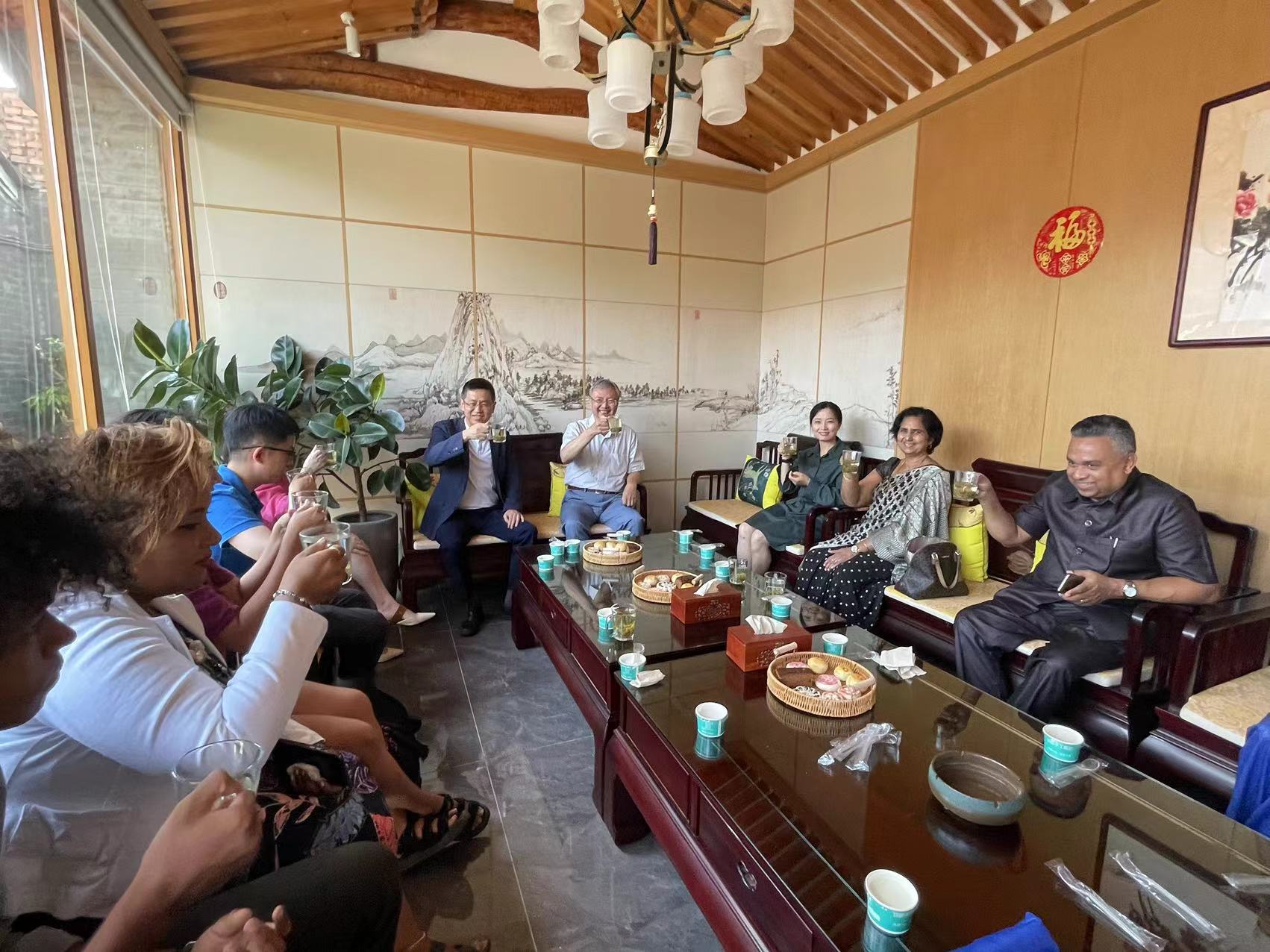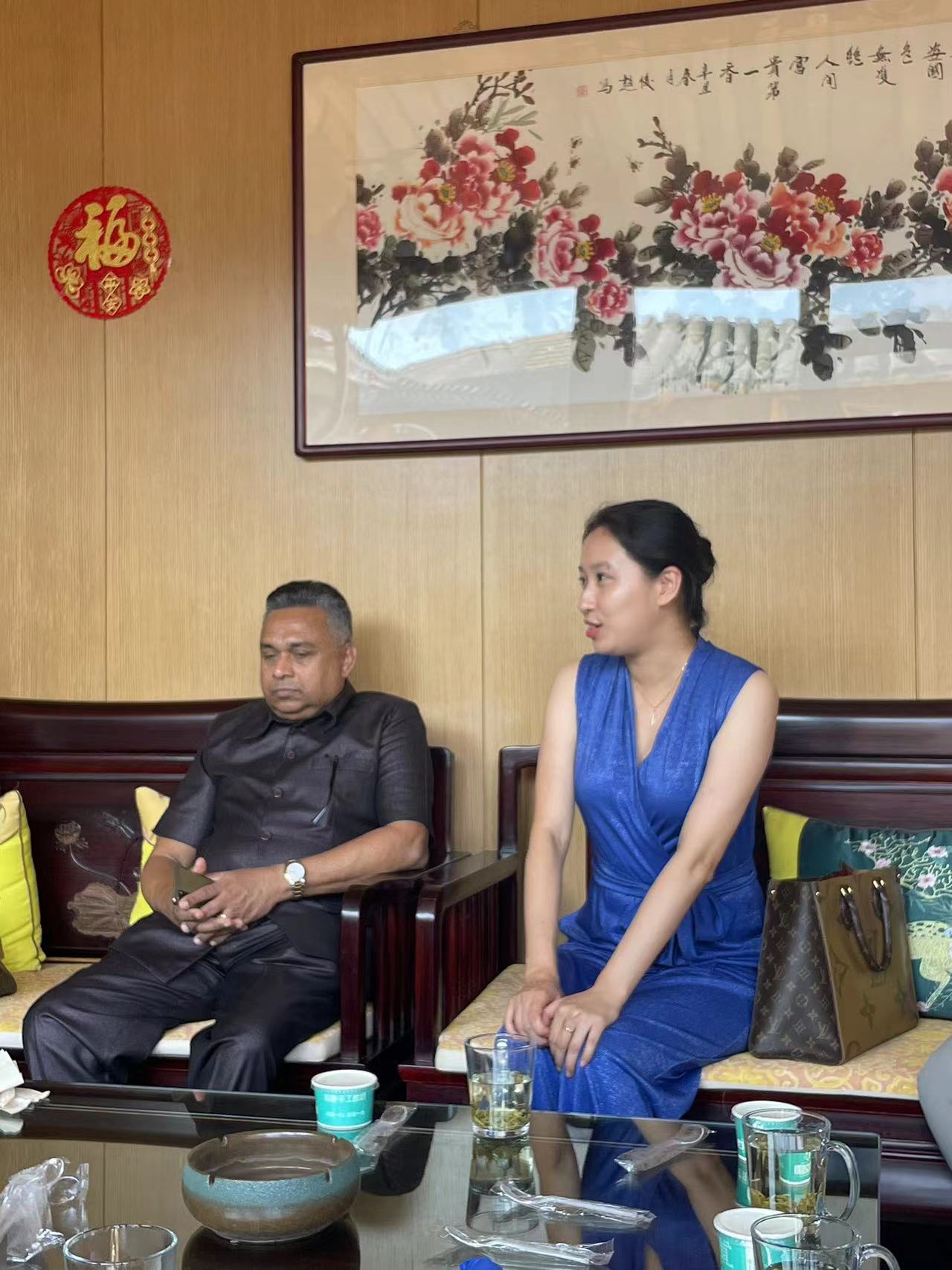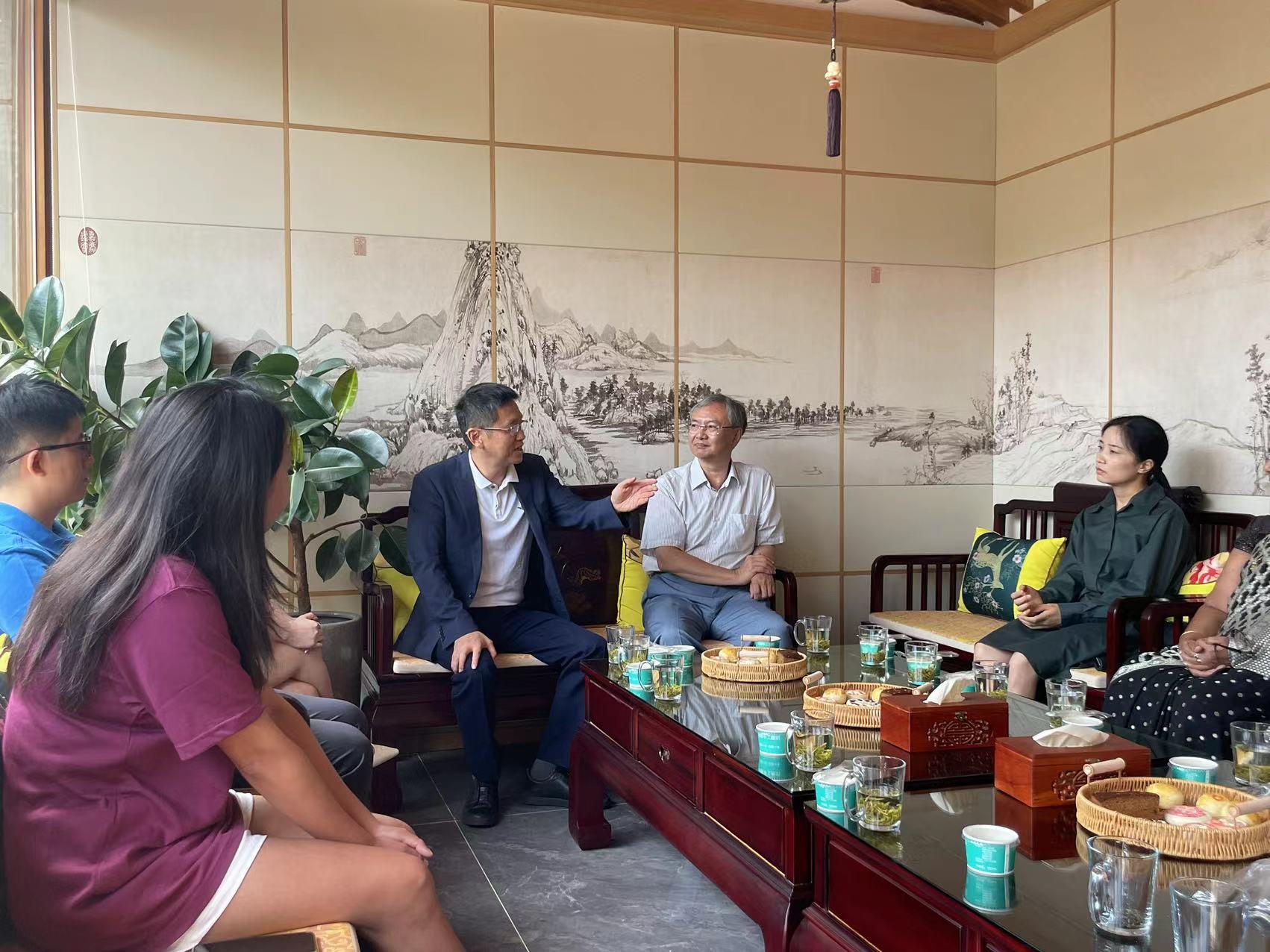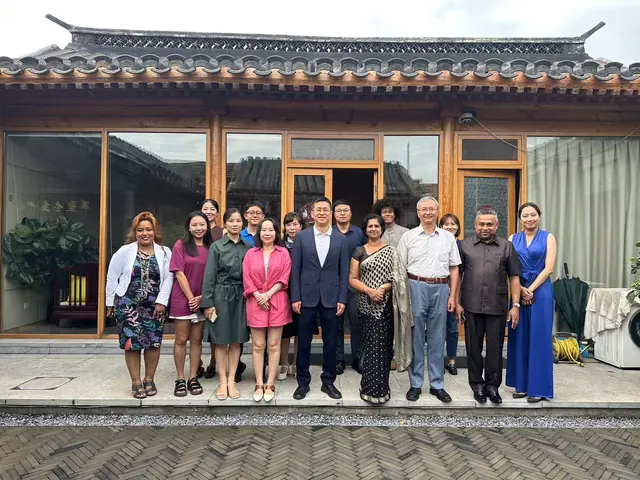As we all know, China is the hometown of tea. The Chinese Tea culture is broad and profound, with a long history, not only including Material culture, but also profound spiritual civilization.
In the afternoon of July 22, Asia Pacific Daily held the first session of "Summer Tea" in Beijing, including Mr.Jin Wensheng, the chairman of Asia Pacific Daily, Mr.Su Hao, a famous expert on international issues and professor of the China Foreign Affairs University, Ms.Nalika Kodikar, the Minister Commercial Counsellor of Sri Lanka in Chin and her husband Mr.Kodikar, Ms.Jiao Xuli,the tea promotion commissioner of the Sri Lankan Embassy in China, Ms.Naglaa Mansour Amer, an Egyptian teacher from Pakistan Embassy School, and her son Shady Ashraf Gahin, Ms.Liu Lili, chief editor of Asia Pacific Daily, Mr.Sun Chenghao, an assistant researcher of the Center for Strategic and Security Studies of Tsinghua University, Ms.Hou Wei, a teacher from Pakistan International School, Ms.Duo Xiaojing, chairman of Huangjing Global Business (Beijing) Co., Ltd., Ms.Zhang Weiyi, executive director of Asia Pacific International Belt and Road Affairs Cooperation Center of Asia Pacific Daily, and other honourable guests attended the event.

In the afternoon of midsummer, Asia Pacific Daily shared green tea with diplomats, international relations experts, and scholars, building a bridge of friendship.
Mr. Jin Wensheng, Chairman of Asia Pacific Daily, first delivered a welcome speech, in which Jin stated that Chinese people drink tea as a tradition. Drinking tea not only emphasizes smelling and tasting tea, but also cultivates one's character. Sri Lanka is a famous producer of black tea, and Egypt is also a major global tea consumer. Tea is like a bond, allowing people from all countries to sit together and work together for a better tomorrow.
Professor Su Hao said that Chinese tea culture has a long history. From "Shennong tasting hundreds of herbs" to China's tea ceremony, Professor Su Hao gave a very clear explanation of China's tea from its origin to its development, and then to its spread overseas.

During the event, Ms. Liu Lili introduced the tea that was tasted that day. The guests present jointly tasted the newly harvested West Lake Longjing tea. West Lake Longjing is one of the top ten famous teas in China, with a long history and unique flavor, which is very suitable for friends from all countries to taste together.
Ms.Nalika Kodikar shared that the famous Ceylon black tea is produced in Sri Lanka and is one of the three largest black teas in the world, known as a "gift to the world". The people in Sri Lanka usually choose to add milk and sugar into black tea, and also likes to drink tea as a way to get together.
Ms.Naglaa Mansour Amer also stated that people in Egypt are accustomed to adding milk and sugar to tea. For her personally, she can no longer do without drinking tea. She drinks a cup of tea after work everyday, and she has become addicted to tea.
Ms.Hou Wei believes that tea and music have no borders. She grew up loving multiple cultures and became a music teacher. She improvised a song with a unique ethnic flavor on site, bringing the atmosphere of the tea party to a climax.
Mr.Sun Chenghao said that there is no problem that cannot be solved with just one cup of tea. Faced with many international problems, we only need to sit down and seriously explore and study solutions through a cup of tea, then many problems can be easily solved.

China has always attached great importance to the inheritance of Tea culture. At this stage, Chinese Tea culture is not only the traditional culture of Chinese people, but also has a positive impact on the world Tea culture. Through this activity of "Summer Tea", we have further expanded our understanding of Tea culture of China and friendly countries, which is not only conducive to enhancing friendship between countries, but also can promote people to people communication.
(APD)
 简体中文
简体中文

